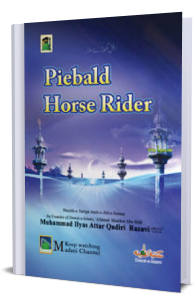
What is the ruling on taking benefit from the Qurbani animal?
Question 1: What do the scholars of Islam say regarding the following matter: ‘It is forbidden to take benefit from the Qurbani animal before it is sacrificed’ - what is the meaning of this? Also, please can you explain from when will it be prohibited to take benefit from the Qurbani animal? Questioner: Saddam Faizani
بسمِ ﷲ الرَّحمنِ الرَّحِیم
اَلْجَوَابُ بِعَوْنِ الْمَلِکِ الْوَھَّابِ اَللّٰھُمَّ ھِدَایَةَ الْحَقِّ وَالصَّوَابِ
Answer: When one makes an intention to sacrifice an animal for the purpose of Qurbani, from that point onwards, it will be impermissible to take any benefit from that animal in any way, shape or form. This is because that animal, with all of its parts, has been specified for attaining reward (i.e. for a good deed) and this reward will be achieved when the blood of that animal is spilt in the Name of Allah Almighty. Therefore, until this actual purpose is attained from that animal, it will be Makrooh (disliked) and not allowed to take any sort of benefit from it. As for the meaning of ‘taking benefit’, this refers to taking benefit from that animal for any personal gain. The honourable Islamic jurists have given several examples of this, like shaving the hair of a Qurbani animal for one’s personal use, extracting its milk, selling its wool or milk, riding it, loading it with something, or leasing it out, etc.
However, it should be kept in mind that if someone has removed the hair of a Qurbani animal or extracted its milk, it is necessary for him to give it away in charity (Sadaqah). In the case of the animal being given away on a lease, he should donate the rent money that he received to charity (Sadaqah). Likewise, if the use of the Qurbani animal has resulted in a decrease of some kind, it will be necessary to give charity (Sadaqah) in accordance to that loss. (Radd al-Muhtaar, vol. 9, pp. 544; Haashiyah al-Tahtaawi ’ala al-Durr, vol. 4, pp. 167; Fatawa Ridawiyyah, vol. 20, pp. 511–512, summarised; Bahaar-e-Sharee’at, vol. 3, pp. 347)
وَالله أَعْلَمُ عَزَّوَجَلَّ وَ رَسُوْلُه أَعْلَم صلَّی الله علیه واٰله وسلَّم
Answered by: Mufti Abu Muhammad Ali Asghar Attari Madani
What is the ruling on others taking a share in the Qurbani animal after it is purchased?
Question 2: What do the scholars of Islam say regarding the following matter: If an individual who owns the threshold amount [Nisab] or if someone who is legally classified as poor in Shari’ah [Shar’i Faqeer] purchases a cow or camel with the intention of Qurbani, then can he make others a partner in that Qurbani after purchasing it? Questioner: Muhammad Ahmad, Karachi
بسمِ ﷲ الرَّحمنِ الرَّحِیم
اَلْجَوَابُ بِعَوْنِ الْمَلِکِ الْوَھَّابِ اَللّٰھُمَّ ھِدَایَةَ الْحَقِّ وَالصَّوَابِ
Answer: If someone who is legally classified as poor in Shari’ah purchased an animal with the intention of Qurbani, then that animal has been specified for him and it is necessary (Wajib) for him to offer that very animal as Qurbani; he cannot exchange that animal nor can he make anyone a partner in it.
However, if a well-off individual (i.e. as defined by Shari’ah) purchased an animal, then it is not necessary (Wajib) for him to sacrifice that specific animal; he can instead exchange it for a similar animal or a more valuable one, and he can make others partners in it as well. But if he made an intention when purchasing the animal that he will sacrifice it on his own behalf only, then it will be Makrooh for him to allow others to take a share in that, though the Qurbani will still be valid on behalf of everyone. If he made an intention at the actual time of purchase that he will make others partners in it if he comes across anyone, then it will be permissible for him to do so without any dislike. (Fataawa ‘Aalamgeeri, vol. 5, pp. 304, Bahaar-e-Sharee’at, vol. 3, pp. 351)
وَالله أَعْلَمُ عَزَّوَجَلَّ وَ رَسُوْلُه أَعْلَم صلَّی الله علیه واٰله وسلَّم
Answered by: Sayyid Mas’ood Ali al-Attari al-Madani
Verified by: Abu Muhammad Ali Asghar al-Attari al-Madani
What is the ruling if a testicle is removed during castration?
Question 3: What do the scholars of Islam say regarding the following matter: A goat was castrated, and during the castration process, one of its testicles was damaged, which was then later on removed - however, that goat was completely castrated. Some people started to say that because one of its testicles was removed, it can no longer be used for Qurbani. I need to ask whether the Qurbani of a goat who has one testicle is valid or not? Please can you advise from an Islamic perspective?
Questioner: Muhammad Ramadaan
بسمِ ﷲالرَّحمنِ الرَّحِیم
اَلْجَوَابُ بِعَوْنِ الْمَلِکِ الْوَھَّابِ اَللّٰھُمَّ ھِدَایَةَ الْحَقِّ وَالصَّوَابِ
Answer: In the aforementioned scenario, the Qurbani of the castrated goat whose testicle has been removed will be valid. This is because even if both testicles of an animal and its genital organ are removed, then the noble jurists declare the Qurbani of such a goat to be valid. Therefore, if only one testicle of a goat is removed, then its Qurbani will be permissible to an even greater degree because removing the testicles of a castrated goat is not a defect which renders Qurbani impermissible. Those people who have said that the Qurbani of such a castrated goat is not valid - their saying is wrong, and such people should refrain from mentioning rulings without consulting Islamic scholars first and they should also repent for mentioning an incorrect ruling as well. (Fataawa ‘Aalamgeeri, vol. 5, p. 367, Fataawa Ridawiyyah, vol. 20, p. 458)
وَالله أَعْلَمُ عَزَّوَجَلَّ وَ رَسُوْلُه أَعْلَم صلَّی الله علیه واٰله وسلَّم
Answered by: Mufti Abu Muhammad Ali Asghar Attari Madani
The ruling regarding the Qurbani of a Shari’ traveller
Question 4: What do the scholars of Islam say regarding the following matter: If an individual who owns the threshold amount [Nisab] was a resident for the first two days of the days of Nahr (days of sacrifice), but he will become a traveller on the last day and will spend the whole day in travel, then will Qurbani be necessary (Wajib) for him or not in such case?
Questioner: Muhammad Jamshayd
بسمِ ﷲالرَّحمنِ الرَّحِیم
اَلْجَوَابُ بِعَوْنِ الْمَلِکِ الْوَھَّابِ اَللّٰھُمَّ ھِدَایَةَ الْحَقِّ وَالصَّوَابِ
Answer: Alongside the other conditions of Qurbani, in order for Qurbani to become necessary (Wajib), one condition is that a person is a resident, and the final time is taken into consideration in terms of Qurbani being necessary (Wajib) or not. Therefore, if an individual who owns the threshold amount [Nisab] becomes a traveller in the final time, then the Qurbani will not be necessary (Wajib) upon him. (Badaa’i al-Sanaa’i, vol. 4, p. 196; Muheet Burhaani, vol. 6, p. 87)
وَالله أَعْلَمُ عَزَّوَجَلَّ وَ رَسُوْلُه أَعْلَم صلَّی الله علیه واٰله وسلَّم
Answered by: Abu Muhammad Faraaz al-Attari al-Madani
Verified by: Abu Muhammad Ali Asghar al-Attari al-Madani


















Comments